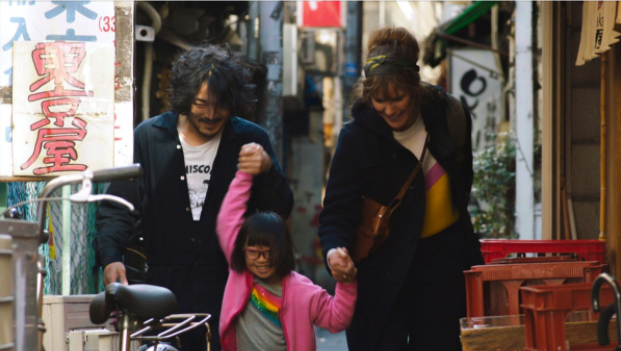DISCLAIMER: This review will have spoilers for the Sundance film “blood.”
Everyone loves a good romance film. The chemistry between the two lead characters make or break the film. The ones that “make” the film can lead to unforgettable watching experiences.
Bradley Rust Gray’s “blood,” which premiered at Sundance in January, joins a plethora of love films. “blood”’s description teases a romance between the two lead characters, Chloe and Toshi. But does the relationship between them make the film memorable, or does it break its chances of standing out?
After Chloe’s husband passes away, she relocates to Japan for her photography work. She reconnects with an old friend of hers and her late husband’s, Toshi. But soon, Toshi’s comfort turns into affection. Chloe realizes that she must accept her husband’s death in order to allow herself to love again.
However, Chloe’s progression towards this acceptance is shown in very small and spread out increments. As a result, the character development feels incredibly slow and hard to spot.
Even though "blood" does not develop the characters well in terms of romance, it pleasantly and accurately shows how one adapts to a foreign culture over time. This, by extension, includes how other native people help that person adapt.
In all the scenes in Japan, Chloe is the only non-Asian person. She knows no Japanese at the start of the film. As a result, she has to mostly rely on Toshi for translations when she is working with somebody who cannot communicate in English.
Many of the people who are able to communicate with Chloe speak broken, rough English. This makes each conversation somewhat suspenseful.
Chloe’s situation reminds me of when I would go back to China to visit my extended family. I would consider myself fluent in Mandarin Chinese. But there are still times when I would helplessly stare at my mom for a translation of something my fast-speaking relative had just said.
I can thankfully communicate with my relatives with ease. But when it came to describing something very intricate, I would often find myself using basic and rough Chinese terms to assist with my description.
Miscommunication is also prevalent in “blood,” though it is mostly used comedically.
In one scene, Chloe tells Toshi that she has an itchy jumper, which Toshi misinterprets as an ichi (壱) jumper. Ichi means “one” in Japanese.
Later while Toshi and Chloe are listening to rock and roll music, Toshi asks her if she likes rock and roll. However, it comes out as, “You like lock ‘n loll?”
In another scene where Chloe meets a dance instructor, the instructor admits, somewhat amusingly, that she struggles to say the word “probably.”
These scenes hit home for me. They mirror what I witnessed with my parents growing up. I have never seen such an accurate representation of the confusion related to conflicting cultures on screen before.
Just like Toshi mishearing itchy for ichi, my parents often mishear English words for Chinese words. Just like Toshi confusing the English r pronunciation with the Japanese l pronunciation in “rock and roll,” my dad will sometimes say English letters in their pinyin pronunciation. Just like the dance instructor, my mom still regularly battles with the words “usually” and “scissors” in her vocabulary.
In the end, Chloe seems to adapt. After the jumper incident, she learns her first Japanese words: one, two and three. She begins to connect more with Toshi’s daughter and the dance instructor by sharing meals and performing more intimate dances respectively.
Ultimately, she seems to be able to better communicate with the people she photographs — a significant step up from the start of the film.
"blood" is great at showing Chloe integrating into Japanese culture and how the people around her react. However, when it comes to her quest to start loving again, the film disappoints me, just like an itchy jumper that will always leave me scratching for more.





0 Comments